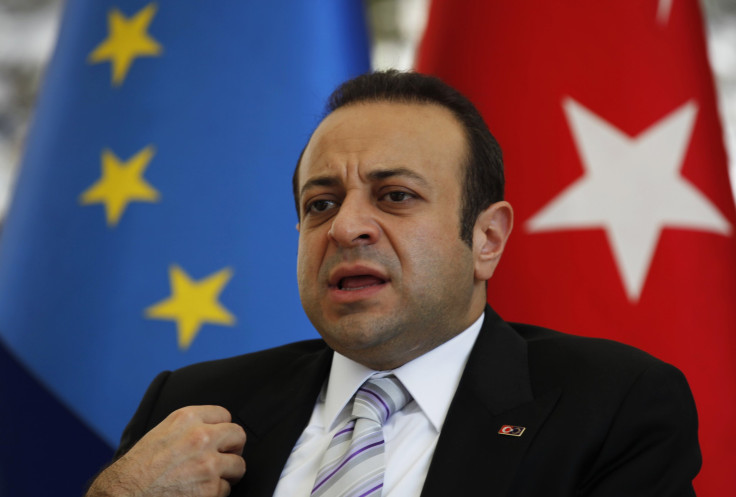Turkey's Erdoğan Should Fire EU Minister Egemen Bağiş

On the laundry list of things Turkish Prime Minister Recep Tayyip Erdoğan should do to restore his image as a Western-style democratic leader: Fire Egemen Bağiş.
The pugnacious European Union minister, responsible for negotiating Turkey’s way into the 27-nation club, has done little but humiliate himself and his country with a series of combative public statements and decrees that make him seem disconnected from reality at best, and waxing despotic at worst.
He said in a speech last week that he deemed protesters in Istanbul’s Taksim Square supporters or members of terrorist organizations. He spent 849 words lambasting The Economist over an article comparing Erdoğan to a sultan. And on Thursday, he ignited already fraught relations with Germany, the de facto leader of the EU, by claiming Chancellor Angela Merkel was stalling Turkey’s accession talks because she was “looking for domestic political material for her elections.”
Despite a brutal, and at times lethal, police crackdown on protesters, Bağiş had the audacity to ream out members of the European parliament for expressing concern over the violence.
“No one should exceed their limits by accusing the Republic of Turkey of using violence,” said the man charged with leading Turkey’s efforts to join the same pan-European entity he now denounces.
Last week, I reported that many -- from Turkish economists to European members of parliament -- felt Turkey was not ready to join the EU. But it’s such an economic powerhouse, I argued back during these interviews. Surely a debt-choked Europe could overlook occasional mistreatment of Kurdish and Alawite minorities in exchange for some economic vitality, right?
Wrong.
The overwhelmingly common answer from everyone I spoke with -- besides, somewhat ironically given the traditional blood-feud between Turks and Greeks, a Greek trade official -- was that the EU is a political, not economic, union, and Turkey ought to meet those human rights standards before becoming a bedfellow of such nations as France, Germany, Italy and the United Kingdom.
Plus, the protests demonstrated the vulnerability of the Turkish economy which, despite its steady growth in recent years, is not yet big enough to buoy Europe's ailing markets. In the midst of the crackdown, the market plunged, bond yields spiked and the lira declined.
Either way, the last man any European negotiator is going to take seriously about reforming Turkey’s human rights record is Bağiş.
© Copyright IBTimes 2024. All rights reserved.






















